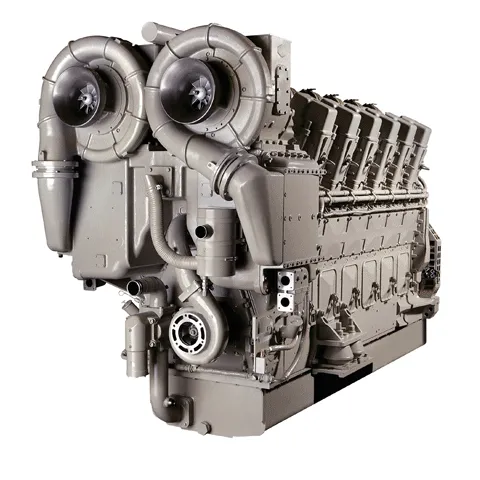A Full Overview to Choosing the Right Engine for Your Project
Selecting the suitable engine for your task is an essential decision that can dramatically affect its total success. It is vital to diligently define your task requires, assess performance requirements, and think about user-friendliness alongside other crucial aspects. In addition, understanding the area assistance available and inspecting price effects can further refine your selection. Each of these elements plays a critical duty in ensuring that your selected engine not just fulfills instant purposes but also straightens with long-term ambitions. As we discover these considerations, you might discover that the subtleties of each facet reveal greater than originally expected.
Define Your Job Demands
Specifying your job needs is an important action in picking the suitable engine for successful execution. A detailed understanding of your task's purposes will certainly assist you in recognizing the attributes and capacities called for from an engine. Begin by laying out the extent of your project, consisting of the wanted capability, target audience, and the particular end results you intend to attain.
Next, consider the technological requirements that align with your project objectives. This includes examining the compatibility of the engine with existing systems, in addition to the shows languages and frameworks that will certainly be made use of. Furthermore, evaluate the degree of scalability needed to accommodate future development or adjustments popular.
Budget constraints additionally play an important function in specifying your project needs. Establish a clear economic structure to assist your decision-making procedure, ensuring that the engine selected fits within your budget while giving the necessary functionality.
Evaluate Performance Requirements

Next, take into consideration the scalability of the engine. Analyze whether it can manage enhanced work as your task expands. Engines that support straight scaling are commonly more effective for bigger applications. In addition, examine the engine's performance under various conditions, such as peak usage scenarios, to ensure it meets your reliability criteria.
Consider Convenience of Use
While technical requirements are important, the convenience of usage of an engine can dramatically affect the development procedure and overall task success. An instinctive interface, clear paperwork, and streamlined workflows can dramatically lower the discovering curve for programmers, enabling them to focus on imagination and analytical instead of grappling with complicated devices.
When evaluating an engine's simplicity of usage, think about the onboarding experience. A well-structured intro, complete with tutorials and sample jobs, can promote a smoother change for brand-new individuals. In addition, the clarity and comprehensiveness of the engine's documents play an essential role; comprehensive guides and API referrals can encourage designers to troubleshoot and apply functions efficiently.
An additional aspect to think about is the engine's modification capabilities. An engine that permits very easy modifications can be extra easy to use, as developers can customize it to fit their certain needs without comprehensive trouble. Analyze the process integration with platforms and tools you already make use of. A natural community can enhance performance and lower friction during the development procedure. Inevitably, choosing an engine that focuses on convenience of usage can lead to an extra productive and satisfying advancement experience.
Assess Neighborhood and Assistance
The stamina of an engine's community and support great post to read network can considerably affect a programmer's experience and success. A lively community typically shows a wealth of shared expertise, sources, and fixing aid that can improve your project's advancement procedure. When assessing an engine, think about the size and task level of its neighborhood. Bigger communities generally offer much more forums, tutorials, and third-party plugins, enabling developers to find remedies more successfully.
Moreover, evaluate the schedule of official assistance networks. Dependable paperwork, receptive consumer assistance, and routine updates are necessary for attending to technological concerns and keeping your job on track. Engines For Africa. Active areas also foster collaboration, supplying chances for networking and responses, which can be invaluable, particularly for independent developers or small teams
Furthermore, explore the existence of community-run events, such as meetups or hackathons. These gatherings can enrich your understanding of the engine while attaching you with potential partners and experienced individuals. In recap, a durable neighborhood and support group not only simplify growth but also create a setting for discovering and development, eventually boosting the probability of your job's success.
Compare Cost and Licensing Options
Spending plan factors to consider play an essential function in choosing the right engine for your task, as the cost and licensing choices can considerably affect both temporary expenses and long-term feasibility. Engines For Africa. Different engines use varying rates structures, which can consist of single acquisition charges, registration designs, or revenue-sharing arrangements based upon your job's incomes

Certifying choices likewise vary dramatically. Some engines are open-source, providing versatility and community-driven support, while others may require exclusive licenses that limit usage best site and circulation. Understanding the effects of each licensing version is vital, as it impacts ownership civil liberties, future scalability, and possible legal commitments.
Final Thought
To conclude, selecting the suitable engine for a project requires a detailed evaluation of specified project demands, efficiency needs, ease of use, neighborhood support, and expense factors to consider. By systematically attending to these essential factors, decision-makers can make sure alignment with both future and current project demands. A well-informed choice inevitably boosts the possibility of project success, making it possible for reliable source allocation and optimizing prospective results within the defined monetary restrictions.
Selecting the ideal engine for your task is a critical choice that can considerably affect its overall success.Defining your task needs is an essential action in selecting the ideal engine for effective application. A comprehensive understanding of your task's goals will lead you in recognizing the abilities and attributes needed from an engine.When you have a clear understanding of your task requires, the next action is to review the efficiency needs of the engine.In verdict, picking the suitable engine for a job requires an extensive examination of defined project requirements, performance requirements, ease of usage, neighborhood support, and expense considerations.